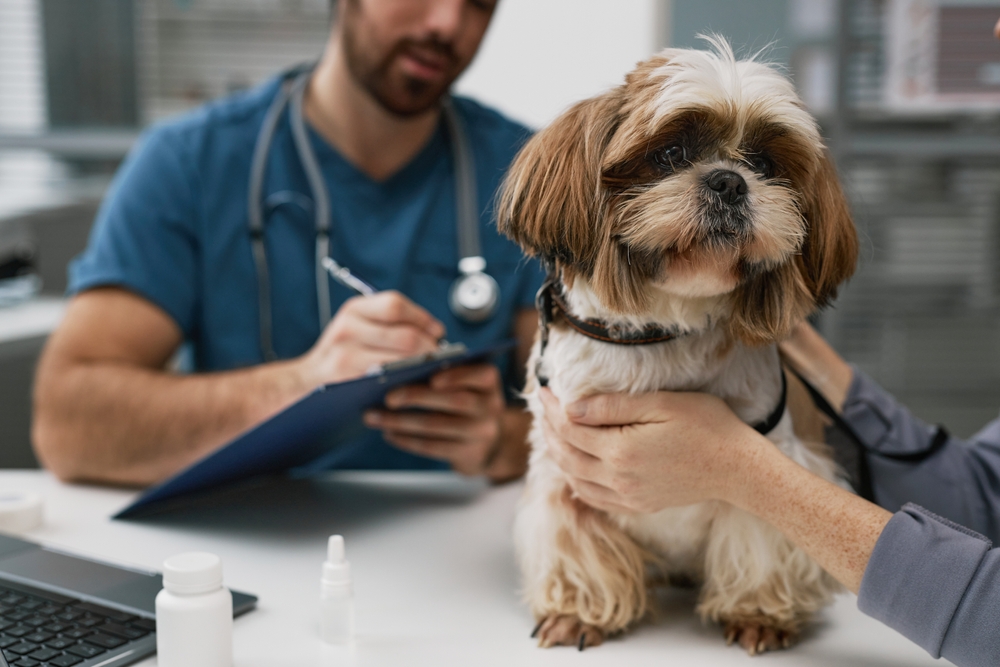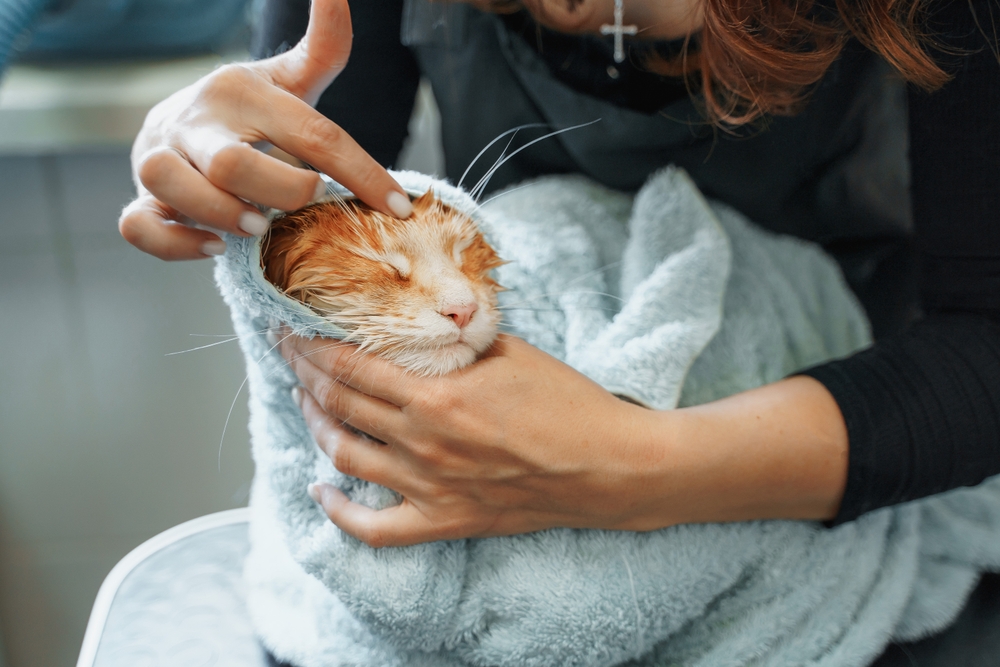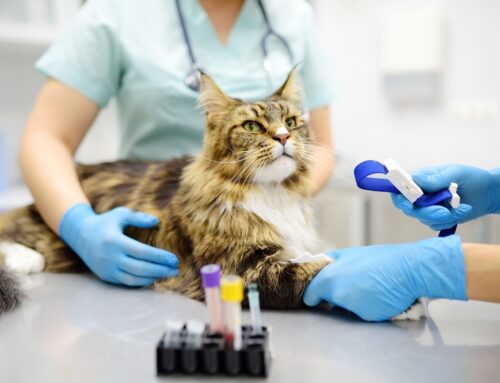Sharing your home with a pet brings joy, companionship, and plenty of entertainment. As a pet owner, your responsibility involves creating a nurturing home environment for your pet. As with humans, stress can impact pets’ health and happiness, so a low-stress home is essential. Our Oliver Animal Hospital team shares seven strategies that will help alleviate your pet’s stress and create a calm, supportive home.
1: Use low-stress handling methods with your pet
The way you handle your pet can significantly affect their wellbeing. Gentle handling prioritizes your pet’s emotional wellbeing by minimizing fear, anxiety, and stress. Sophia Yin, DVM, created low-stress handling methods to help pets during necessary grooming and health care tasks at home. Low-stress handling methods include the following fundamentals:
- Provide comfort — Ensure you and your pet are in a comfortable environment when you initiate interactions.
- Move slowly — Move deliberately and slowly when approaching your pet and avoid sudden movements or loud noises.
- Respect your pet — Forgo the interaction and respect your pet if they appear uncomfortable or walk away.
- Keep your balance — Support your pet by positioning your hands, arms, and body appropriately, so they do not feel off balance.
- Prevent escape — Hold your pet gently and securely to keep them from squirming or attempting a sudden escape.
- Wait until your pet is ready — Wait until your pet is relaxed before starting any procedure, such as nail trimming, bathing, or teeth brushing.
- Watch for stress signs — Hold your pet gently, and watch for signs, such as looking away, yawning, or panting, that signal discomfort.
- Treat and treat again — Distract your pet with treats and praise to increase their comfort and reduce their stress.
2: Create a consistent routine for your pet
Pets thrive on routine, and they need consistency in their daily activities (e.g., feeding, walking, playtime, and bedtime) to help them feel secure. A predictable routine reduces anxiety and stress in pets when they know what to expect and when. Feeding, walking, and playing with your pet at the same time each day will help them relax and feel comfortable in their environment.
3: Provide a safe space for your pet
Every pet needs a quiet retreat where they feel safe. Designate a space in your home (e.g., a spare bedroom) where your pet can get away from the daily hustle and bustle. Ensure this space is always accessible, so your pet can seek security and comfort at any time. Also, provide a comfortable bed and interactive toys and treats, such as a Kong filled with xylitol-free peanut butter, to keep your pet engaged when they are in their safe space.
4: Exercise your pet daily
Regular exercise is essential for your pet’s physical and mental health. Exercise not only helps your pet burn off excess energy but also helps reduce boredom or stress that often leads to destructive behavior. For dogs, consider daily walks, runs, or playtime in the yard. For cats, interactive play with toys can provide the physical and mental exercise they need.
Activity will help keep your pet healthy, happy, and stress-free.
5: Provide enrichment activities for your pet
Boredom can lead to stress and anxiety in pets, and for this reason alone, mental stimulation is as important as physical exercise. Mental enrichment provides a healthy, safe way for your pet to express their natural behaviors, which improves their mental, emotional, and physical wellbeing. Provide your pet with toys and activities that engage and challenge their minds, such as puzzle feeders for dogs and scratching posts and interactive toys for cats. Rotate your pet’s toys and introduce new activities to prevent boredom.
6: Use calming aids to support your pet
Some anxious pets need extra help to stay calm, especially during stressful situations, such as thunderstorms, fireworks, or environmental changes, but calming aids can help. Try pheromone diffusers, calming collars, or calming vests, or ask your veterinarian to recommend supplements or prescribe medications so you can provide your anxious pet with some relief.
7: Prioritize your pet’s health and wellbeing

Alleviating your pet’s stress and anxiety is crucial for their general health and wellbeing. Regular wellness visits are essential to ensure they are healthy and to address any medical issues early.
Creating a low-stress home for your pet requires your knowledge, patience, and commitment. When you recognize that your pet is stressed and implement our strategies, you can help ensure your pet’s life will be happy, healthy, and stress-free.
The veterinarian in south Austin at Oliver Animal Hospital prioritizes your pet’s mental health and uses low-stress handling methods at every visit. Contact us to schedule your pet’s next low-stress wellness exam.







Leave A Comment